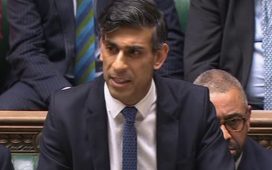Downing Street has just issued a statement explaining in what circumstances it would use the provisions in the internal market bill IMB allowing it to overrule the withdrawal agreement (in breach of international law). This is a crucial issue. As discussed earlier (see 10.43am), Lord Keen of Elie seems to have resigned as advocate general for Scotland because he was worried that the powers in the bill were not there just for use as a last resort.
Overall today’s statement will go some way to defuse the row about the bill. But it will do more to appease Tory MPs and peers worried about the legislation than anyone in Brussels, and it does not amount to a clear climb-down. Judging by the instant reaction on Twitter, opinion as to the significance of the statement is very divided.
The full statement, entitled “Government statement on notwithstanding clauses”, is here. Here’s a guide to its conciliatory features – and its less conciliatory features.
Conciliatory features
1) The internal market bill is enormously provocative because it gives the UK government powers to ignore parts of the withdrawal agreement it signed less than a year ago – and because the very act of passing the bill would also arguably break international law, even if those powers were never used. Today’s statement says, effectively, that the UK would only use those powers in the bill if the EU breached the withdrawal agreement first. It says in its first paragraph:
HMG will ask parliament to support the use of the provisions in clauses 42, 43 and 45 of the UKIM bill, and any similar subsequent provisions, only in the case of, in our view, the EU being engaged in a material breach of its duties of good faith or other obligations, and thereby undermining the fundamental purpose of the Northern Ireland protocol.
2) The statement accepts that goods going from Britain to Northern Ireland should be liable to tariffs or import VAT if there is a “real risk” of their entering Ireland. This is only what the withdrawal agreement says, but the publication of the IMB suggested the UK was trying to wriggle out of this commitment.
3) The statement says confirms that the UK is committed to using the dispute settlement mechanisms in the withdrawal agreement. Again, this is only something the government signed up to in January, but publication of the IMB implied the government would not use these procedures. The statement says:
HMG confirms that in parallel with the use of these provisions it would always activate appropriate formal dispute settlement mechanisms with the aim of finding a solution through this route.
The final clause – “with the aim of finding a solution through this route” – implies using the dispute resolution mechanisms would take precedence over using the powers in the IMB.
4) The statement accepts that EU state aid law would apply to firms operation in Northern Ireland. Again, this is only what the government signed up for in the withdrawal agreement, but the publication of the IMB suggested it was having second thoughts. The statement says that what the UK would object to would be any attempt to apply EU state aid to firms operation in Britain if they had just a “trivial” link to commercial operations in Northern Ireland.
5) The statement says it would be unacceptable for the UK to refuse to grant the UK third country listing for agricultural goods “for manifestly unreasonable or poorly justified reasons”. Until now the government has implied that any refusal to grant third country listing would be unacceptable. The prospect of the EU refusing listing seems remote, but Boris Johnson has offered it as his main justification for the IMB.
On the other hand …
Less conciliatory features
1) The statement does not quite commit the government to only using powers in the IMB once the dispute settlement mechanisms in the withdrawal agreement are exhausted. It implies this – see 3) above – but it also says the IMB powers would be activated “in parallel”, which implies something different.
2) The statement does not explicitly commit the government to always accepting the outcome of any dispute settlement. Yesterday Brandon Lewis, the Northern Ireland secretary, refused to give a commitment on this.
3) The statement says the UK would regard any EU insistence on exit summary declarations for goods going from Northern Ireland to Britain as justification for using powers under the IMB. As one example of what it would view as a breach of the agreement by the EU, it cites:
Insistence on paperwork requirements (export declarations) for NI goods going to GB, thereby compromising the principle of “unfettered access” in article 6 of the protocol;
The UK claims the “unfettered access” clause in the protocol means the exit summary declarations should not apply. But elsewhere the protocol says they should apply for NI/GB trade, and the EU is insisting on them. This issue matters to Johnson because in the election campaign last year he famously told Northern Ireland business leaders that he wanted any such forms thrown in the bin – even though the deal he had agreed did require them, as other government ministers admitted. It is as if No 10 is now trying to retrospectively justify what Johnson said.













